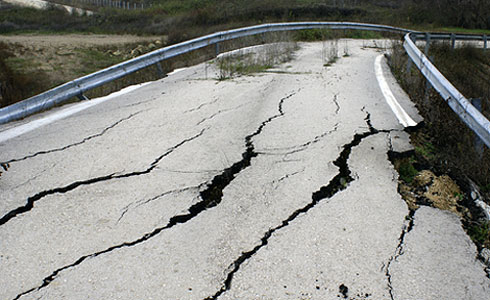One year after, the statistics of the Japan National Police Agency state that more than 15,000 people lost their lives through the earthquake and Tsunami, over 6000 were injured, and more than 3.000 are still missed. Not to mention the destroyed property, lost homes and an area for decades uninhabitable due to the nuclear crisis caused by the event. The economic losses by this disaster amount to 210 billion dollars, 40 billion of which were insured.
Recovering from the shock - and living with the risk
One year after, Allianz Re has settled the majority of its claims from the earthquake in Japan. Was reinsurance prepared for a disaster of that extent? "We are of course aware that Japan is situated in a high earthquake risk zone with a lot of seismic activity. Most of the time it doesn't cause so much damage, but a heavier event somewhere in the region was to be expected," explains Sibylle Steimen, seismologist and head of Cat management at Allianz Re.

The economic losses by this disaster amount to 210 billion dollars, 40 billion of which were insured.
Interestingly, the northern part of the island of Honshu was not seen by Japanese scientists as a zone with highest earthquake hazards when comparing to other regions of the country. "This is a very impressive and also sad example how scientists have their theories but also still learn important lessons with each event" adds Steimen.
Japan is a technologically advanced and industrialized country – with a high level of insurance penetration. Insurance helps to mitigate the losses and supports rebuilding of the impacted areas, which will nevertheless take years to recover.
For insurers and reinsurers, the Japanese earthquake was one of a number of major natural catastrophes in 2011, causing severe financial losses for the industry. How does the market react, now, that renewals are due for that region on 1st April 2012? "We are seeing initial indication of improved terms for assumed risks", explains Angela Tan, regional manager Non-Life Treaty of Allianz Re's Singapore office.
The learning from the catastrophe event considerable changed the understanding of the underlying risk. For example that in a globally connected world, the impact of a major natural disaster is not limited to the local population. The quake and Tsunami destroying factories and facilities, global supply chains were disconnected for weeks after the event. This needs to be calculated also from an insurance point of view.
"We have higher expectations now with regard to transparency, structure and data on exposure along the lines of interest abroad, contingent business interruption (CBI) conditions and natural catastrophe exposure", Angela Tan adds.
While insurers and reinsurers adjust their terms in reaction to the catastrophe, possible prevention methods and early warning systems are being discussed to mitigate the impact of such a quake in the first place.
"There is no prevention of an earthquake as such," comments Sibylle Steimen. "Early warning or accurate forecasts for Earthquakes would certainly help crisis management in the impacted regions and allow for evacuations like in case of Hurricanes, but it is not possible to predict when and where a major quake will happen. That Tsunamis can follow earthquakes under certain conditions is known and early warning systems have been established since quite some time in Japan," she adds.
When the Earthquake hit in Japan last March, a Tsunami-warning was issued accordingly without delay. But as the earthquake had happened so close to the coast, people had only about 20 minutes to react. That was too short for many of them to escape the waves.
Has the risk profile of Japan with regard to Earthquake been revised after the 2011 event? "Japan is located in an area where several continental plates converge", explains Sibylle Steimen. "This will always cause high tectonic activity that can lead to major ruptures deep in the earth, causing anything from slight tremors to major earthquakes. Japan is living with this risk. And the insurance industry has to live with it as well."
As with all content published on this site, these statements are subject to our Forward Looking Statement disclaimer.
Link to the disclaimer